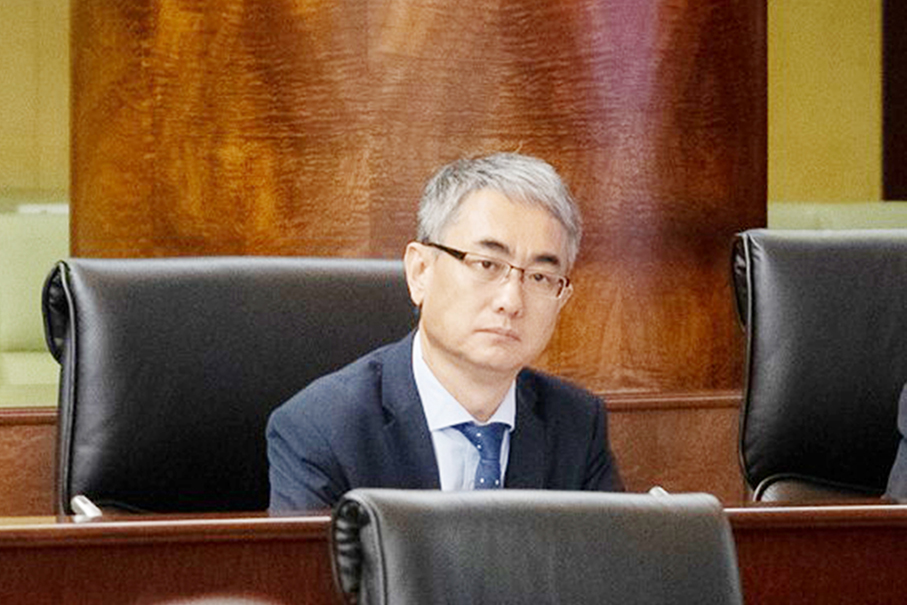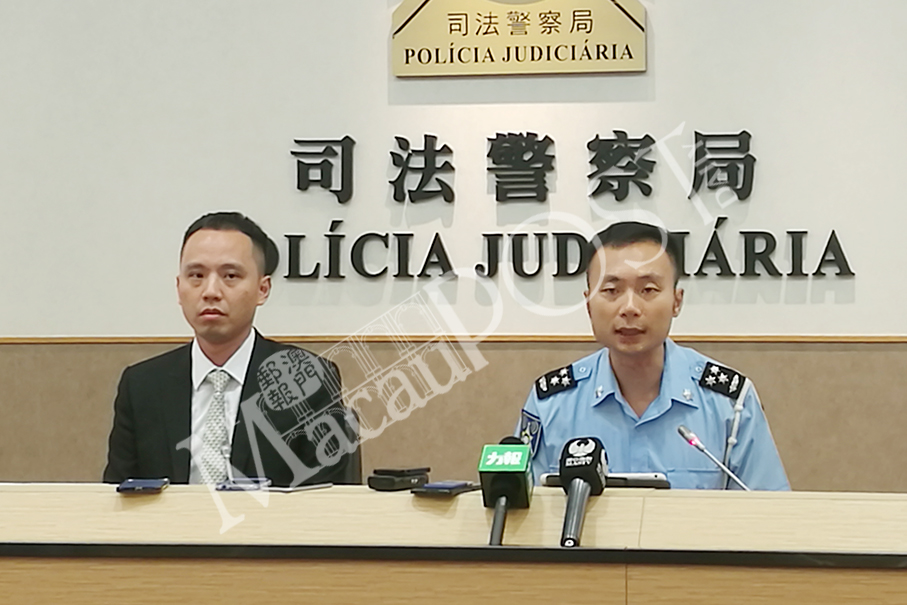The Legislative Assembly (AL) unanimously passed yesterday the outline of a government-initiated bill amending the Chief Executive (CE) Election Law, which proposes that the Committee for Safeguarding National Security of the Macau Special Administrative Region (MSAR) will be tasked with assessing whether chief executive election candidates uphold the MSAR Basic Law and bear allegiance to the People’s Republic of China (PRC) and the MSAR.
In addition, the amendment bill also proposes to criminalise those who publicly incite others to cast blank or invalid votes, or to abstain from voting, in the chief executive election.
The MSAR chief executive election is held every five years. The head of the MSAR is elected by a 400-member committee. The next chief executive election will be held next year.
Secretary for Administration and Justice André Cheong Weng Chon introduced the outline of the amendment bill during a plenary session in the legislature’s hemicycle yesterday.
After yesterday’s passage of its outline, the amendment bill will be passed to one of the legislature’s standing committees for an article-by-article review, after which it will be resubmitted to another plenary session for its second and final debate and article-by-article vote.
Govt expects final article-by-article vote by year-end
Cheong noted yesterday that with the aim of ensuring the full implementation of the “patriots governing Macau” principle and improving the administrative procedures for the organisation of the CE election, the local government carried out a public consultation between June 15 and July 29 on proposed amendments to the Chief Executive Election Law.
After studying the opinions collected during the public consultation while also considering Macau’s real situation, Cheong said, the government drafted the Chief Executive Election Law amendment bill.
Cheong also said that the government expects the legislature to pass the amendment bill in its second and final article-by-article vote by the end of this year, after which the government can start the organisation of next year’s chief executive election in compliance with the Chief Executive Election Law’s new version.
While the current version of the Chief Executive Election Law stipulates that a chief executive election candidate must uphold the MSAR Basic Law and bear allegiance to the PRC and the MSAR, it does not require the candidate to sign a declaration confirming his or her agreement.
The amendment bill proposes to require chief executive election candidates to sign a declaration confirming that they uphold the MSAR Basic Law and bear allegiance to the PRC and the MSAR.
National security committee to assess candidates’ allegiance
In addition, the amendment bill proposes that when the Chief Executive Electoral Affairs Commission (CAECE) is assessing chief executive election candidates’ qualifications, it will be required to request the Committee for Safeguarding National Security of the MSAR to assess whether the candidates uphold the MSAR Basic Law and bear allegiance to the PRC and the MSAR.
The amendment bill proposes that if the CAECE decides to disqualify a chief executive election candidate after the Committee for Safeguarding National Security of the MSAR has concluded that he or she does not uphold the MSAR Basic Law or has been disloyal to the PRC or the MSAR, the respective candidate cannot file an appeal to the CAECE nor the courts against the decision.
Most of the 400-member committee that elects the chief executive, officially known as the Chief Executive Election Committee, are elected by registered association representatives.
Every five years, the election of the Chief Executive Election Committee is held a few months before the chief executive election.
Different to candidates for the MSAR Legislative Assembly election – who already are formally required to uphold the MSAR Basic Law and bear allegiance to the MSAR, the current version of the Chief Executive Election Law does not require members of the Chief Executive Election Committee to uphold the MSAR Basic Law and bear allegiance to the MSAR.
The amendment bill proposes that members of the Chief Executive Election Committee will also be required to uphold the MSAR Basic Law and bear allegiance to the MSAR, as well as to sign a declaration confirming their agreement.
The amendment bill also proposes that the Committee for Safeguarding National Security of the MSAR will also be tasked with assessing whether candidates for the election of the Chief Executive Election Committee uphold the MSAR Basic Law and bear allegiance to the MSAR.
Moreover, the amendment bill proposes that after the Committee for Safeguarding National Security of the MSAR has concluded that a chief executive election candidate does not uphold the MSAR Basic Law or has been disloyal to the PRC or the MSAR, he or she will be ineligible to stand as a candidate for the next five years. The bill also proposes that the five-year rule will also be applicable to candidates for the election of the Chief Executive Election Committee.
Up to 3 years behind bars
The amendment bill proposes that those who publicly incite others to cast blank or invalid votes, or to abstain from voting, in the chief executive election will face a prison term of up to three years.
Cheong underlined the government’s rationale for proposing to criminalise such behaviours, saying that they would undermine the order, fairness and impartiality of the election as well as potentially affect the election results. Cheong noted that similar rules are listed in the respective election laws of numerous other countries and regions.
After yesterday’s unanimous passage of the bill’s outline, a number of lawmakers voiced their support for the local government’s decision to propose amendments to the Chief Executive Election Law.

Secretary for Administration and Justice André Cheong Weng Chon addresses yesterday’s plenary session in the Legislative Assembly’s (AL) hemicycle.
– Photo: GCS







